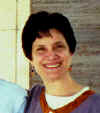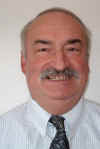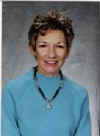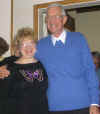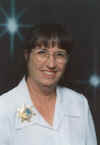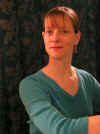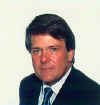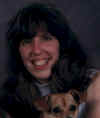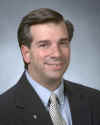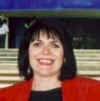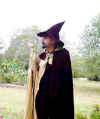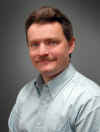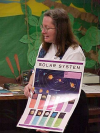Focus Group Introductions
To match the name with the face with the person with the background...
Jim Sweitzer brings experience in creating planetariums and exhibits, science education and outreach, administration of museums and educational programs, and the development of science media to his current role as principal of Science Communications Consultants. He directed the creation of the new Hayden Planetarium and exhibitions for the Rose Center for Earth and Space Science at the American Museum of Natural History in New York City. As Director of DePaul University’s Space Science Center, he linked NASA’s Space Science missions with a variety of educational communities in the Midwest. As co-director of CARA, a National Science Foundation Science and Technology Center at the University of Chicago, he helped establish the first observatory at the South Pole. Sweitzer’s museum experience began at the Adler Planetarium in Chicago, where he served as Assistant Director. Jim received his PhD in Astrophysics from the University of Chicago, where he also currently coaches graduate students in the creation of science exhibitions.
Liz
is a consulting psychologist based in Oak Park, Illinois.
Her
| PIX |
Rob LaSalvia
Rob LaSalvia has been working in the Educational Programs Office at the NASA Glenn Research Center since June of 2002. Mr. LaSalvia currently works on projects related to both formal and informal K-12 Education and serves as a producer for NASA distance learning and educational television. He is a licensed teacher in the State of Ohio and is currently working on a Master's in Educational Technology for Baldwin-Wallace College.
Over the past two decades, Rob Landis has worked at Space Telescope Science Institute; at the Pentagon in the DoD Space Test Program; as an engineer on the Rossi X-ray Timing Explorer at Goddard Space Flight Center. While at JPL he worked on the Cassini-Huygens mission to Saturn and led uplink operations on the Mars Exploration Rovers (Spirit and Opportunity). He has recently returned to Johnson Space Center, Mission Operations Directorate, working in the international liaison office. Half of his time is now spent in the Mission Control Center-Moscow as a flight controller for space station Alpha.
Prior to working for NASA, Mr. Landis was an intern at Strasenburgh Planetarium in Rochester, New York and a presenter at Abrams Planetarium, Michigan State University, East Lansing, Michigan. His passion is flying and is a pilot, having flown more than a dozen different types of aircraft. Most recent publication: "General Old Stars: The Beginnings of Astronomy in the United States" in the February 2005 issue of the Griffith Observer. Other astronomy pursuits include the study of asteroids, whether it's NEOs and PHAs with the IRTF or looking for little moonlets of asteroids with Hubble--he's there!
Hello! I’m
Gary Sampson of the Gary E. Sampson Planetarium.
That’s right; when I “retired” as a planetarium director and
astronomy teacher at
As a
longtime GLPA member, I was chair of Instructional Materials for 12 years and am
now the GLPA Past President. As an
IPS member, I was the inaugural chair of the Education Committee.
Highlights of my career also include being a Teacher-Leader for extended
astronomy field trips with high school students to
My name is Gene Zajac.
I work at a planetarium at Shaker Heights,
I am a member of the Solar
System Ambassador program, a member of the Great Lakes Planetarium Association,
a member of the Cleveland Regional Association of Planetariums, a husband, father, grandparent and a clown
a.k.a. "Mudpuddle." I
was honored to receive the Astronomical Society of the Pacific's Brennan Award in 2003.
I enjoy building telescopes and teaching in the planetarium.
Most of my memorable professional experiences have involved partnerships
with colleagues who are my friends.
A veteran teacher,
Deborah is currently the Science Resource Facilitator for a district in
southwest
Deborah is a new
2005 Solar System Ambassador for JPL. An
education consultant to the NASA Space Science Center for Education and Outreach
at
Deborah and her husband Mike are active members of the Evansville Astronomical Society (EAS). Part of the NASA Nightsky Network, EAS sponsors numerous astronomy telescopic viewing opportunities for school children and the public. Deborah and her husband assist with a 15-inch Dobsonian telescope she obtained for her school district through a grant.
I am Director of the Westlake Schools Planetarium, where I
have been for 30 years. I teach astronomy and geology as well as plan,
schedule, and present lessons for students in grades K-12. Lessons are
interactive and interdisciplinary, and beginning this year lessons are all
geared to state standards. I give free programs of my topics for families
every month during the evening, in which children five and older visit and learn
together.
My Ph.D. topic (University of Akron) was the design of a set of four Learning
Cycle planetarium programs for eighth grade students in the planetarium and the
development of a set of tests which assessed the ability to think of phenomena
as seen from two perspectives simultaneously--the view from the Earth or
planetarium and the view from space. Such concepts and abilities were
designated "projective" by Jean Piaget, and they reveal true
understanding of basic concepts of Earth rotation, Earth revolution, moon
phases, and planet motions.
I am active in the Great Lakes Planetarium Association (a past president and
education chair), the International Planetarium Society (a past president and
chair of the ad hoc committee on consumer affairs and astronomical accuracy),
the Astronomical Society of the Pacific (a past Board member, a Thomas Brennan
Award winner, and current chair of the Brennan Award Committee), and the
Cleveland Astronomical Society (a past president and current secretary). I
prepare the test for the annual high school Science Olympiad astronomy
competition at Ohio State University. I have written numerous articles and
given many talks and workshops on topics of planetarium and astronomy education.
I am interested in women in science, archaeoastronomy and the history of
astronomy, and astronomical literacy for all.
My husband Allan and I live in Westlake. Allan just retired from NASA
Glenn Research Center. Our son Eric is in graduate school studying
bioinformatics at Boston University.
David Hurd is planetarium director and professor at Edinboro University of Pennsylvania. Hurd spent the first four years of his career in active military duty – better known as teaching junior high students in southwest Nebraska. After completing a master’s in science education from the University of Nebraska, Hurd moved to Battle Creek, Michigan where he serviced the public schools and general public as curator of astronomy at the Kingman Museum of Natural History. In the fall of 1992, Hurd came to Edinboro University where he continues to bring “the heavens within reach of tomorrow’s America.” With over 10,000 participants each year visiting the Edinboro University Planetarium, Hurd focuses on creative and energetic outreach programs to get people interested in astronomy. One of his interests is the development and implementation of tactile astronomy for blind students. Visit edinboro.edu and look under Parents and Visitors to learn more about the Edinboro University Planetarium (www.edinboro.edu/cwis/planetarium/web/home.htm).
I spent 10 years as a classroom teacher (for Grades K, 2, and then 5-8 Math) and
16 years as a portable planetarium director/educator.
My employer was a state service agency called OCM BOCES. I ran the
planetarium program as an outreach service to twenty-three school districts from
the BOCES Math, Science and Technology Center. In a typical year 20,000 students
and their teachers experienced a lesson in the planetarium. I generally taught 6
classes each day.
I have been an active member of GLPA and MAPS as well as IPS. I have a strong commitment to networking with other isolated planetarians and promoting science education. This has led me to share my experiences and to pass on colleagues’ experiences through presenting papers and workshops each year since becoming a planetarian, writing handbooks and providing a column for members of the small and mobile dome community in the IPS quarterly journal, the Planetarian. I have recently retired from working as a full time portable planetarium director. Currently, I work part time as a planetarium educator and consultant through my own business “Quarks to Clusters.” And now I have a new full time job, on the side, as the International Planetarium Society’s President Elect.
Beth Amsbary is Floor Presentations Supervisor at Pacific Science Center in Seattle, overseeing the onsite planetarium and science demonstration stage. She has worked as an informal educator, integrating theatre arts and other disciplines in residencies at The Frick Museum in Pittsburgh, Museum of History and Industry in Seattle, and Unit One at the University of Illinois, among others. Amsbary has served as Artistic Director of Seattle Public Theatre, Managing Director of Seattle Mme Theatre, and Development Associate at Taproot Theatre Company. A sample of Beth's arts activities are at www.prayeriegirl.com.
Chuck Bueter began to appreciate the night skies while aboard freighters as a cadet of the Great Lakes Maritime Academy in Traverse City, Michigan. Later, during cloudy winters when the the dinner boats he captained were ice-bound, he earned a B.A. degree at University of Illinois-Chicago and stargazed under the dome as a sky show presenter and astronomy intern at the Adler Planetarium. Chuck worked piecemeal at Cleveland-area planetariums and developed programs for the planetarium community while perfecting the at-home-dad scam. One project he maintains, Paper Plate Education at http://analyzer.depaul.edu/paperplate, is a collection of hands-on activities--many with an astronomy emphasis--that can be made from simple paper plates. Most recently Chuck produced and coordinated local and national 2004 Transit of Venus events, including a planetarium program on DVD/CD; art exhibits; an historic artifacts display; teacher workshops; shipment of solar shades to U.S. troops overseas; musical performances; a public observing celebration; and the Transit of Venus website at www.transitofvenus.org.
Chuck's astronomy ventures have been supported by Planetarium Learning And Teaching Opportunity (PLATO) grants, by an IDEAS grant, by a Toyota TAPESTRY grant, by his wife's and children's generosity, and in-kind by the Office of Space Science (OSS) Center for Education and Outreach at DePaul University. A 12-year member and a Fellow of the Great Lakes Planetarium Association (GLPA), he is the GLPA representative to the International Planetarium Society (IPS). Favorite quote, by Gordon Parks: "Enthusiasm is seeing the importance in what you do, giving it dignity, and making what you do important to yourself and to others."
Jon has served as the director of the Irene W. Pennington Planetarium since its opening in May 2003. Prior to this position, Jon directed the Lane Planetarium in Eugene, Oregon where he also served as an adjunct astronomy instructor at the University of Oregon and Lane College. Prior to Eugene, he was director of the Andrus Planetarium in Yonkers, New York and completed an Internship program at the Strasenburgh Planetarium in Rochester, New York. Jon worked at the Carl Zeiss Planetarium in Stuttgart, Germany while attending the University of Tuebingen in Tuebingen, Germany. He graduated from the University of Nevada, Reno.
Jon is currently Past-president of the International Planetarium Society (IPS) and has served as president of the Pacific Planetarium Association. He has taught K-12 science and astronomy education for over fifteen years. He was awarded a Fellowship in the IPS and is a member of the society’s Education and Language committees. He is a member of numerous astronomy and planetarium organizations.During over thirty years of teaching (grades 3-6), Dayle Brown specialized in science and planetarium education. As the Owner/Director of Pegasus Productions (pegasusproductions.net) , Dayle provides astronomy related presentations to schools and the public in her portable planetarium. She also presents papers and workshops on planetarium education and storytelling under the stars at professional conferences. Ms. Brown left the classroom to continue with her work as a planetarium educator and to pursue her love of art. Her watercolor paintings have shown in area museums and galleries. She lives with her husband, David Piser, in Mishawaka, IN. They enjoy traveling together and spending time with children and grandchildren. Most recently, Dayle has written and illustrated a full-color book titled: Skylore from Planet Earth: stories from around the world...ORION . The book explores fifteen stories from around the world about the constellation ORION, giving a glimpse into the histories and cultures of the planet's early civilizations. *The book is available on-line at authorhouse.com for $24.25, or directly from Dayle at this meeting for $18.00. Parent/Teacher guides are also available for $2.00.
| PIX |
Sean Washington grew up in Battle Creek, Michigan. After
spending 4 years in the US Army, Sean developed a strong desire to help, leading
him to work within Battle Creek Public Schools as a teacher’s aide, assistant
Student Support Specialist, Community Liaison and finally Student Support
Manager. Working with youth provided the opportunity to help and to learn how to
be an educator at the same time. According to Sean, one of his standout moments
during this time was when he was chosen to lead a national training team. “I
loved being able to call my mom and tell her that, yes, indeed people will pay
money to listen to me run my mouth” he said in reflection.
Starting at Kingman Museum in July of 2004 was a natural extension of his experience. The ability to further hone his speech-craft while developing programming for the museum which meets the state standards that he became acquainted with during his time with the school system was a bonus for the museum and for him.
I fell in love with the planet Jupiter in 9th grade, and decided I wanted a career in astronomy. So, I earned a B.S. of Science in Astronomy from the University of Maryland, College Park campus, in December 1990. I also was interested in the planetarium field, and started working part time on weekends at the Howard B. Owens Science Center's planetarium in 1991. In 1993, I expanded my weekend responsibilities to include serving as a "flight director" for the center's Challenger Learning Center. Hoping to someday end up with a full-time job at the county school system-owned science center, I expanded my education to complete a Master of Arts degree in Science Education, Curriculum and Instruction in December of 2000.
In August of 1998, I began my teaching career as a science resource teacher at Ardmore Elementary School in P.G. County. By the time there was an opening at the science center in August of 2000, I was fully tenured and had almost 10 full years experience in the planetarium. I started teaching there, and helped out quite a bit in the planetarium, eventually assuming the role of planetarium director beginning with the 2001 school year. I had been active in the Middle Atlantic Planetarium Society since my part-time days, so was eager to host a conference. Our administration approved, and we hosted the conference in May, 2003. That same year I was voted President-Elect of the society, and assumed those responsibilities in 2004. I expanded my planetarium experience to serve as a part-time lecturer at the Albert Einstein Planetarium at the National Air and Space Museum from 1999-2004. I thoroughly enjoyed that experience, stopping work only when I found it interfered with my weekend responsibilities at Owens. Currently my future goals include teaching astronomy as adjunct faculty at a local community college.
Joel Halvorson, is the Educational Technology Fellow for the Science Museum of Minnesota. His work focuses on using emerging technologies like the Internet, GIS, and High Definition video, to develop new educational applications. Currently he is working with NASA and informal science centers to produce HD science programming and creative applications of geospatial data and data visualizations.
Recently Mr. Halvorson co-produced "Future Frontiers Mars" and "Mars 3D"; - HD programs following the NASA MER mission, currently being shown in museums around the world. Over the years he as developed numerous Internet based education project, most notable Journey North (ww.learner.org/jnorth) funded by the Annenberg/CPB Math and Science Project. Journey North engages students and teachers in a study of interdependent global ecological systems and in 1999 received a "Webby" selected as the top education site on the Web by the International Academy of Digital Arts and Sciences. Prior to his work at the Museum, Halvorson worked on the implementation of Minnesota's K-12 Internet Access project, InforMNs (Internet for Minnesota School). This dial-up training ground for Minnesota educators led to a statewide proliferation of school district direct Internet connections. Halvorson holds an M.A. in learning technologies (with a certificate in instructional design) from the University of St. Thomas in St. Paul and a State of Minnesota Teaching License for mathematics education grades 7-12, having taught High School for ten years.
 Robert
Bonadurer
Robert
Bonadurer
Robert Bonadurer is the Director of the Minnesota Planetarium and the President-Elect of the Great Lakes PLanetarium Association. He has produced over 20 star shows and films. His astronomical highlights includes witnessing three total solar eclipses and the Leonid meteor shower. He love reading about the history of astronomy.
| PIX |
Erika Reinfeld
Erika Reinfeld has been with the Universe Forum since June of 2001 and has worked on a number of projects including the Cosmic Questions traveling exhibition, the MicroObservatory online telescope center, teacher workshops, online and print resources, as well as science education research. Her background is in astronomy and theatre; she holds a B.A. from Wellesley College. She is currently the Project Coordinator for "Inside Einstein's Universe," an education outreach program for informal education organizations celebrating the Einstein Centennial/World Year of Physics in 2005.
David DeFelice, a
Community Relations Specialist, joined the staff of the National Aeronautics and
Space Administration's
A native of
Kay Ferrari, Coordinator
Solar System Ambassadors Program
Jet Propulsion Laboratory
4800 Oak Grove Drive, MS 311-100
Pasadena, CA 91109-8099
Email: Kay.A.Ferrari@jpl.nasa.gov <mailto:Kay.A.Ferrari@jpl.nasa.gov>
SSA Email: Jpl.Ambassadors@jpl.nasa.gov <mailto:Jpl.Ambassadors@jpl.nasa.gov>
Phone: (818) 354-7581
Fax: (818) 354-7586
 Carolyn Sumners, PhD.
Carolyn Sumners, PhD.
Dr.
Carolyn Sumners is Director of Astronomy, the Physical Sciences and all Youth
Education at the Houston Museum of Natural Science and she oversees the Museum's
Burke Baker Planetarium and Challenger Learning Center. Dr. Sumners created the
Challenger Learning Center problem-solving simulator in 1988 and it has now been
replicated in over 50 Museums and Science Centers. She opened the first digital
planetarium theater in the United States in 1998 and has been responsible for
the production of ten different full dome programs for the planetarium. She is
also curator for three permanent exhibit halls: the Welch Chemistry Hall,
Fondren Discovery Place, and the Earth Forum. She directs all youth education
programs for the Museum with over 200 Science Camps each summer as well as
classes throughout the year for children, families, teachers, adults, and
astronauts.
Dr. Sumners receives partial funding from the Houston Independent
School District for her astronomy teaching and is an adjunct professor in the
Physics and Astronomy Department at Rice University. She is also an associate
member of the Center for Computational Science and Distributed Simulation at the
University of Houston Downtown. She is Co-Director of the Immersive Earth
Project, funded by NASA through Rice University and was Co-Director of Museums
Teaching Planet Earth and the Space Connection -- also NASA grants through Rice
University. She also directs the Astronomy Road Show, a program funded by the
NASA Broker and Facilitator program at the Lunar and Planetary Institute. In the photo, Carolyn is coming out of the inflatable vestibule dome she has
invented.
Kirkpatrick Planetarium
2100 N.E. 52nd
Oklahoma City, OK 73111
(405) 602-3705
CURRENT POSITION
Director and Staff Astronomer, Kirkpatrick Planetarium
of Kirkpatrick Science and Air Space Museum at Omniplex, since 1984
EDUCATION
-
Case Western Reserve University, astrophysics
-
Putnum City High School in Oklahoma City
PUBLICATIONS HIGHLIGHTS
-
Monthly astronomy column in Daily Oklahoman since 1984.
-
Four scripts for "Stardate", astronomy radio program produced by the McDonald Observatory.
-
Five book reviews in "Explorer", a national museum magazine.
-
"Halley's Comet: My Life Story," Shale Shaker, Feb 1986, Vol. 36, No 4.
-
"The Return of Halley's Comet," The Journal of the Oklahoma Medical Association, March 1986.
-
"1990 Radio-Video Star Party," Astronomy magazine, April 1991.
-
"Okie-Tex '91: Mission Accomplished," Astronomy magazine, April 1992.
-
"Phenomena & Planet Visibility Report," Directory of Oklahoma State Almanac 1991-92, 93-94, 95-96, 97-98, 99-00, 01-02, 03-04.
-
"Visions of the Universe," The Planetarian: Journal of the International Planetarium Society, March 1989, Vol. 18, No. 1
-
"Stellar Navigation by Mexican Bats in a Planetarium," The Planetarian: Journal of the International Planetarium Society, March 1990, Vol. 19, No. 1
-
"Possible Origin of the Pawnee Creation Story," The Planetarian: Journal of the International Planetarium Society, December 1999, Vol. 28, No. 4
-
MISCELLANEOUS:
-
Produced educational program on the STARDUST mission for NASA for global distribution.
-
Consultant for other planetaria developing educational astronomy programs for global distribution.
-
Fellow if the International Planetarium Society
-
Member and President, past IPS Representative, Southwest Associations of Planetariums
-
Member, Rocky Mountain Planetarium Association
-
Member and past president of Oklahoma City Writers, Inc.
-
Board member of Youth Arts Month (State Department of Education sponsored)
-
Member, Putnam City High School Gifted/Talented Program Development Committee and Classroom Curriculum Committee.
John
Stoke manages the Informal Science Education branch of the Space Telescope
Science Institute’s Office of Public Outreach, where he and his team create a
spectrum of resources for the informal education community, as described on
their website: http://hubblesource.stsci.edu.
Among those resources is an award-winning IMAX short film and an innovative
multimedia display that delivers fresh astronomy daily to a growing network of
over fifty museums, planetariums, observatory visitor centers and national
parks, incorporating content from an expanding list of space exploration
missions and observatories.
John
has been an active practitioner in the informal science education community for
over two decades, having held science education and planetarium positions at the
Prior
to joining the Institute in 1999, John was Program Director for Sky-Skan, Inc.,
a major visualization technology provider in the planetarium community, where he
trained planetarium directors worldwide in advanced programming techniques. He
has received awards from the American Association of Museums and Association of
Universities for Research in Astronomy and is a fellow of the International
Planetarium Society.
Becky Lowder is the Assistant Director of the Georgia Southern Planetarium for the Department of Physics at Georgia Southern University in Statesboro, Georgia (http://cost.georgiasouthern.edu/physics/planetariumpage1.html). She shares her passion and enthusiasm of astronomy and space science with thousands of visitors from Pre-K to adults under the 30 foot dome with a Spitz A4 star projector. She teaches astronomy lab and the planetarium internship classes at the university level, and manages the planetarium outreach programs for Pre-K - adults for the public. She is also a selected volunteer in the Jet Propusion Laboratory Solar System Ambassadors Program since 1999, as well as the Saturn Observation Campaign for the Cassini Mission outreach. She is an instructor for Project SENSE workshops for the Georgia Southern Museum during the summer months, instructing teachers in astronomy and using the portable StarLab domes.
Mrs. Lowder is also a member of the Southeastern Planetarium Association, the Astronomical League, the Statesboro Astronomy Club, and the National Science Teachers Association. The planetarium along with the Statesboro Astronomy Club won the international 1st place Astronomy Day Award in 2004 for their outstanding annual Astronomy and Space Day event for the public. Mrs. Lowder is also active in public outreach with NASA's Night Sky Network through the Statesboro Astronomy Club, where she shares the views of the sky through her 6 inch Dob with thousands of people of all ages. Mrs. Lowder earned her BS degree in biology from the University of South Carolina in 1985. She has a wonderful and understanding family consisting of husband, David, teenage sons, Chris and Tim, and their 2 family cats.
Anita Davis
Becky Lowder
Cathy Graves
Dawn Jenkins
Johndarr Bradshaw
Rene Elias
Dan Winings
Dianne Jeffers
Joe Kolecki
Carol Galica

